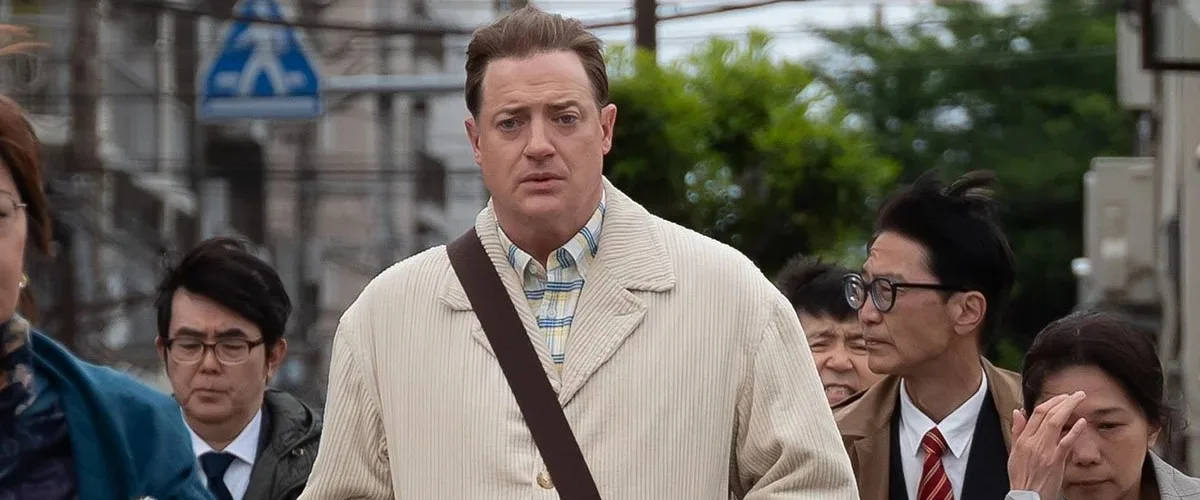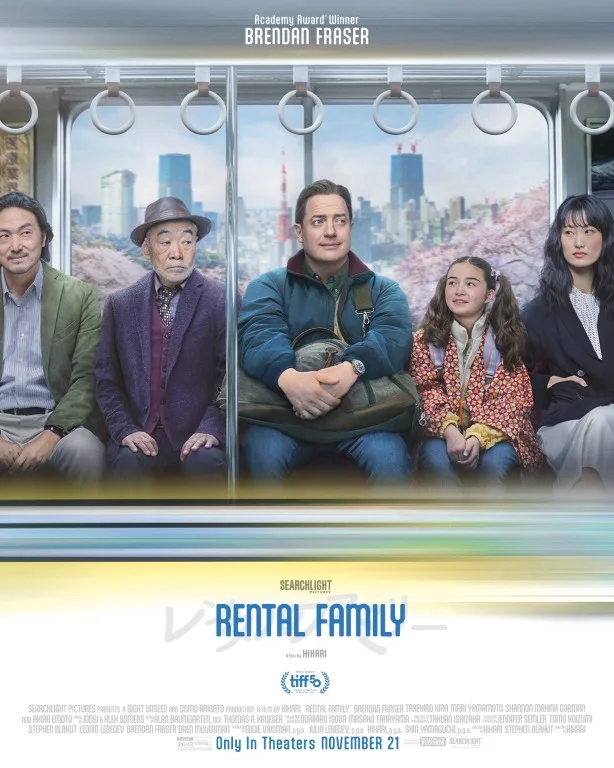We are served quite the dicey premise in the Tokyo-set drama/comedy “Rental Family,” and in the wrong hands, it could have been a cringey, overly sugary disaster. But thanks to Hikari’s elegant direction, a nimble and melancholic script by Hikari and Stephen Blahut, and the tenderhearted and attuned performances by an ensemble led by Brendan Fraser, Takehiro Hira, Mari Yamamoto, and Akira Emoto, this is a beautiful and contemplative film, with lovely messaging and a couple of sly twists.
I’m not ready to call it the best film of 2025, but it might just be my favorite.
“Rental Family” is inspired by real-life businesses such as Nihon Kokasei Honbu (Japanese Efficiency Corporation) that enable clients to literally rent out actors to portray wedding guests, estranged parents, romantic partners, etc. (In 2019, Werner Herzog mined this material to great effect in the scripted docudrama “Family Romance, LLC.”) Brendan Fraser is Phillip Vandarploueg, a middle-aged actor who moved to Japan to star in a toothpaste commercial seven years ago, subsequently appeared in a string of second-rate productions and is now struggling to find work. We can’t help but be reminded of Bill Murray’s Bob Harris in “Lost in Translation”—but whereas Harris was on the back nine of his successful career, it’s clear that Phillip has never risen above the level of journeyman actor.
Constantly grimacing as if there’s a pebble in his shoe, his natural resting face resembling that of a sad Emoji in human form, Phillip has tried to assimilate and has become fluent in Japanese. Still, we get the distinct feeling he has stayed here because there’s no one back in America who cares if he ever returns. (In a couple of elegiac sequences, we see Phillip alone in his apartment, looking out his window and watching the full and happy lives of residents in the building across the way as if he’s taking in a television program. It’s like a sad-sack take on “Rear Window.”)
With Hikari and cinematographer Takurô Ishizaka shooting much of the story in bright daylight (in contrast to so many night-driven, neon-soaked Tokyo stories), Phillip lands a gig with a rental family business run by the brusque and efficient Shinji, played by Takehiro Hira in a strong performance that reveals surprising layers along the way. At first, Phillip’s jobs are relatively straightforward and mainly played for laughs, and the deception baked into the various gigs is for a greater good. Phillip plays the older, Canadian groom so the bride can save face with her parents and start a new life, the token “sad American” at a fake funeral so the “deceased” can see how he will be mourned, and he becomes the video-game best buddy to a lonely guy. (Phillip’s co-worker Aiko, played by the striking Mari Yamamoto, is often saddled with more bruising work, regularly playing the stand-in to the mistresses of married men and feeling the wrath of the men’s wives.)
Eventually, Phillip is hired for two jobs that present serious moral quandaries. He poses as a journalist writing a magazine piece on a legendary but largely forgotten actor named Kikuo (Akira Emoto), who is beginning to lose his memory. He is hired by a single mother (Shino Shinozaki) to play the father of a daughter he’s never met—11-year-old Mia (Shannon Gorman)—to increase Mia’s chances of gaining admission to a prestigious middle school that will go a long way in shaping her future. The thread involving the actor Kikuo veers into a direction that stretches plausibility but remains emotionally resonant. In that second major plot, we’re immediately troubled by the notion of a mother hiring someone to play her daughter’s dad, if only for a few weeks. I mean, this is NOT good parenting, even if it comes from a place of love.
When Mia’s initial and understandable resentment of this man she believes to be her father begins to melt away, it’s undeniably sweet and touching when they bond—but we know this arrangement is destined to go sideways. The man encouraging Mia, becoming text buddies with Mia, and hanging up artwork Mia has given him is an actor. His feelings of affection for her are real, but the person he is playing is a fictional construct. To Hikari’s great credit, “Rental Family” acknowledges the troubling nature of this gig, as Phillip finds himself in a seemingly impossible situation that could easily turn into something with cruel and lasting consequences. It’s heavy stuff, and it’s well-handled, and the script finds just the right moments to inject some light comedy into the proceedings.
“Rental Family” is unabashedly sentimental, almost Frank Capra-esque at times. It’s also a thoughtful and insightful presentation of this unique and admittedly strange business of renting humans to help other humans. And it’s a knowing character study of a gaijin in Japan who knows he could live there forever and never fully grasp and understand the culture, but will never stop trying.
Marlon Brando famously said that we are all actors, and we lie constantly every day, either by saying something we don’t believe or not saying what we’re really thinking. For Phillip, the task is figuring out what to do when the lies must stop and truth awaits him at every turn.




















